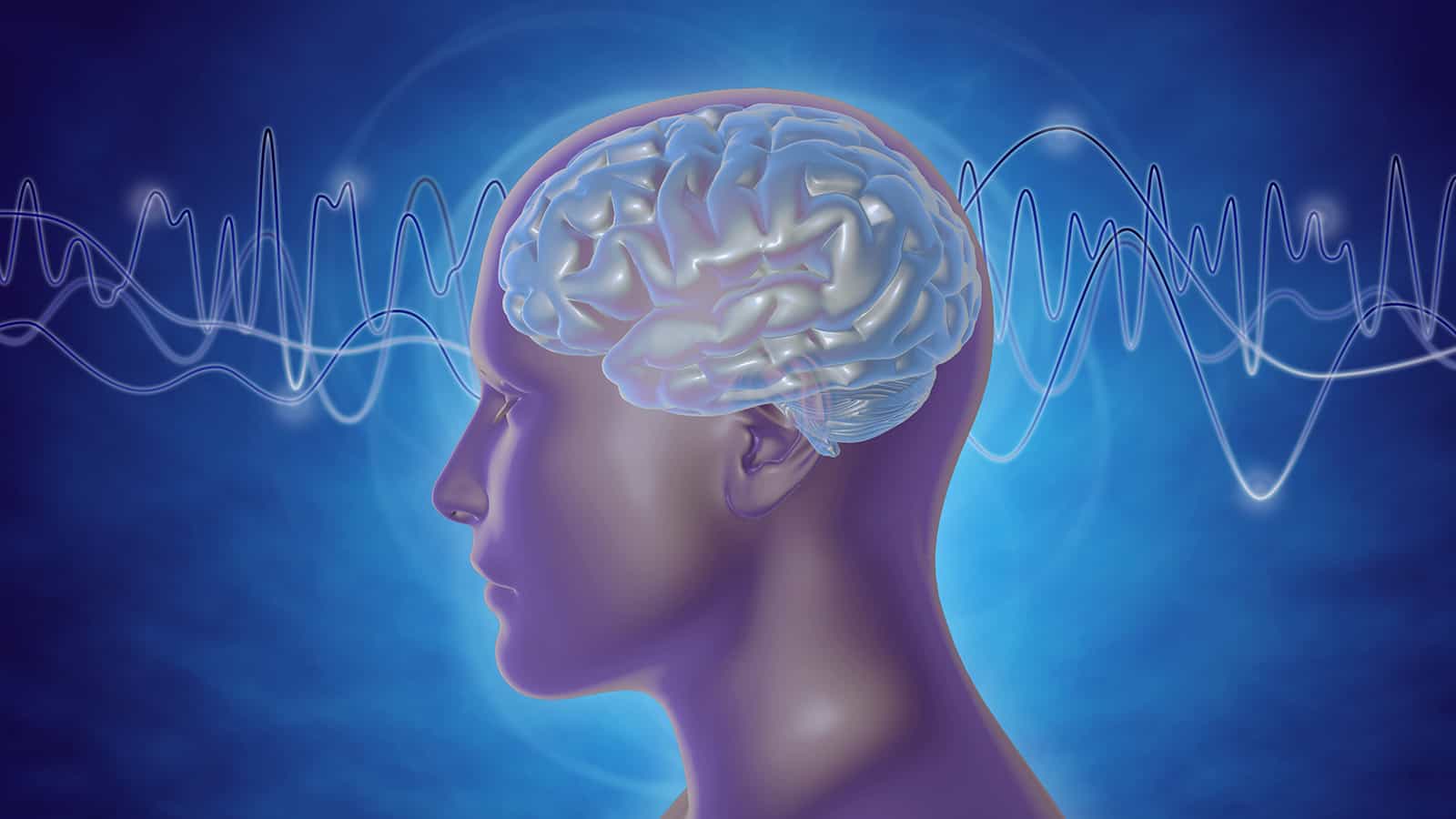Neuroscientists from the University of Oregon found that seemingly random brain waves serve a unique purpose. Even in restful states, the brain remains active; however, scientists hadn’t explored these background signals much until recently.
The recent study in mice sheds light on these signals that continuously hum in the brain’s background. Scientists believe these signals may help the brain transition between inattention or passivity to focus states.
The journal Neuron published these findings on October 14, 2021.
For many years, neuroscientists have studied a fluctuating brain wave known as the alpha rhythm in humans. This signal seems to reveal whether a person is attentive or inattentive. However, scientists still don’t fully understand how this brain wave influences human performance.
“Brain states have big effects on how you can think and perform,” said UO neuroscientist and Presidential Chair David McCormick, who led the new study with postdoctoral researcher Dennis Nestvogel.
For example, if you try to perform a profoundly engaging activity while the brain is in “background mode,” it will seem very difficult to focus. Your brain doesn’t process information as efficiently and will run more slowly in this state. However, if the brain is overly active, it won’t function at peak performance.
So, scientists wanted to investigate how the brain regulates and switches between these states. Understanding brain waves on a deeper level would help them figure out how to improve attention and focus.
Neuroscientists Reveal That Some Brain Waves Are More Than Mere Background Noise
For the study, McCormick and Nestvogel analyzed a background firing signal in mouse brains that functions similarly to the human alpha rhythm. They then recorded the animals’ neural activity while exploring to find out which brain waves correlated with certain behaviors. They noticed that the rhythm appeared during rest periods and disappeared when the animals moved around.
This explains how the neural firing pattern in a brain at rest stems from communication between the thalamus and the cortex.
“We’ve known the thalamus is important for sleep,” Nestvogel said. “But not much is known about how the thalamus may control moment-to-moment changes in waking states.”
The thalamus acts as a switchboard in the brain, receiving signals from various brain areas and sending them down different paths. The neurons involved in this process “can send two different types of signals: They can rhythmically discharge in a resting hum, or they can switch to information-transmitting mode,” McCormick said.
The team observed that the mice could switch between active and inactive states in milliseconds. However, when researchers inhibited activity from the thalamus, the cortex could no longer switch to the more engaged state. Instead, the background signals in the mice resembled the patterns observed during periods of sleep or drowsiness.
In the future, the team hopes to understand more about where these brain waves come from and how they impact performance. Pinpointing the mechanisms of these brain signals may result in improved treatments for ADHD and other mental conditions affecting focus.
“In the past, people thought that most of the spontaneous rhythms in the awake brain constitute random noise,” Nestvogel said. “We still don’t fully know their purpose, but we can now better predict these signals and see their effects on information processing and behavior.”
Four Ways to Improve Brain Health
Neuroscience continues to uncover new information about how the brain works and ways to improve its functioning. In today’s complex society, it’s more important than ever to enhance our focus and attention. We have so many distractions that it seems impossible to accomplish our goals. However, with a bit of practice and exercise, we can achieve mental clarity and complete necessary tasks.
Just like your body, the brain requires upkeep and maintenance. If you don’t keep it active and engaged, it will stagnate and become restless. So, we’ll give you a few tips on how to keep your brain waves operating harmoniously.
- Studies prove that meditation changes brain waves and patterns to invoke a sense of tranquility and focus. Long-term meditators (30+ years) typically have increased high-frequency brain waves (beta and gamma), which invoke deep relaxation and mental acuity. Start with fifteen to thirty minutes per day of sitting quietly and focusing on your breath. As you start noticing the benefits from your practice, it will inspire you to continue on the path.
- Eat a healthy diet. It’s well-documented that a poor diet filled with processed foods leads to brain fog. Putting unnatural foods into your body decreases energy and lowers oxygen levels in the brain. If you want a healthy mind, fuel your body with foods from nature and limit or avoid junk foods.
- Get enough sleep. Many of us don’t get enough beauty in our modern world rest. If you sleep less than six or seven hours per night, you’ll wake up feeling groggy and mentally unfocused. To perform your best, make sure to prioritize sleep and shut off electronics a couple of hours before bed. These devices can disrupt melatonin levels and make you feel alert instead of sleepy.
- Avoid or limit social media/Internet in general. In the age of information, it seems we’ve reached the point of overload. This doesn’t mean you shouldn’t use the Internet at all, but be mindful of your habits. Look at your phone or tablet as a tool to use when necessary, not when you’re bored.
Final Thoughts on a Study Showing the Importance of Alpha Brain Waves
Scientists had little information on the constantly oscillating brain wave called the alpha rhythm. This brain signal occurs in the background and determines whether a person is engaged or inattentive. A new study reveals that disruptions in these rhythms may explain certain brain disorders like ADHD.
They hope to uncover more about these brain waves and help improve mental health in future treatments. We all want a healthy brain, but they sometimes don’t cooperate. However, with this research and the tips above, perhaps we can finally unlock the vast power of our brains.
















 Community
Community

